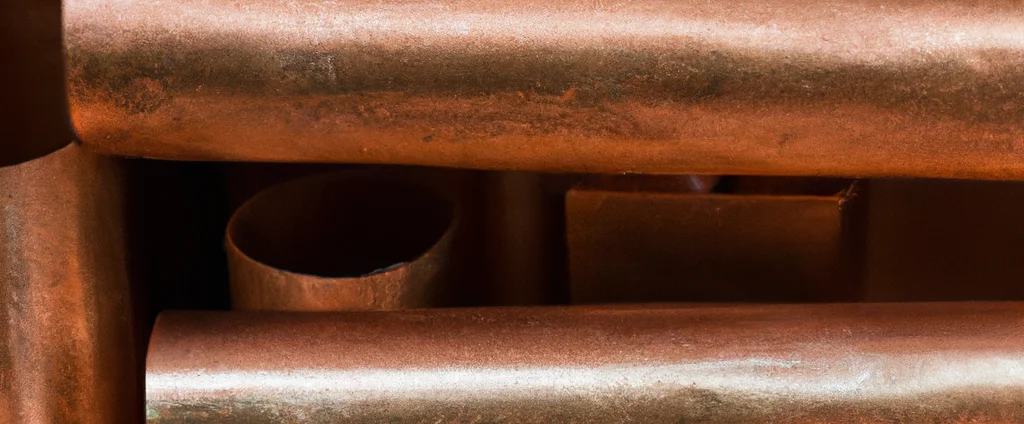Leaded Red Brass (UNS C83600)

Leaded red brass C83600 is a copper alloy known for its corrosion resistance, machinability, and reddish hue. It is traditionally used in plumbing, pumps, and industrial components, though lead restrictions now limit some applications.
| Chemical Composition | ||
|---|---|---|
| Element | Min | Max |
| Copper | 84.0% | 86.0% |
| Aluminum | —— | 0.005% |
| Antimony | —— | 0.25% |
| Iron | —— | 0.3% |
| Lead | 4.0% | 6.0% |
| Nickel | —— | 1.0% |
| Phosphorus | —— | 0.05% |
| Silicon | —— | 0.005% |
| Sulfur | —— | 0.08% |
| Tin | 4.0% | 6.0% |
| Zinc | 4.0% | 6.0% |
The following table provides a list of brass C83600 properties in both SI and US customary/Imperial units.
Click on the button to switch between Metric and Imperial units.
| Physical Properties | Metric |
|---|---|
| Density | 8830 kg/m3 |
| Mechanical Properties | Metric |
| Tensile Strength (Ultimate) | 250 MPa |
| Tensile Strength (Yield) | 120 MPa |
| Young’s Modulus (E) | 90 GPa |
| Shear Modulus (G) | 40 GPa |
| Elongation at Break | 30% |
| Poisson’s Ratio (ν) | 0.34 |
| Brinell Hardness | 60 |
| Thermal Properties | Metric |
| Melting Point | 855 - 1010 °C |
| Thermal Conductivity | 72 W/m·K |
| Specific Heat Capacity (Cp) | 380 J/kg·K |
| Coefficient of Thermal Expansion (αL) | 1.8×10-5 1/°C |
| Electrical Properties | Metric |
| Electrical Conductivity | 8.7×106 S/m |
| Electrical Resistivity | 1.15×10-7 Ω·m |
| Magnetic Permeability | 1.0 |
The values in this table are approximate and can vary depending on various factors such as the specific manufacturing process and heat treatment applied to the alloy.
Advantages & Disadvantages of Leaded Red Brass C83600
| Advantages | Disadvantages |
|---|---|
| Excellent corrosion resistance | Toxicity |
| Good durability | Regulatory restrictions |
| Machinability | Environmental considerations |
Applications of Leaded Red Brass C83600
Leaded red brass C83600 has long been used in various applications due to its desirable properties. However, increasing concerns about health and environmental effects of lead have prompted efforts to reduce lead content in products. As a result, the use of leaded red brass may now be limited or replaced by alternatives. Still, here are its traditional applications:
- Plumbing fittings: Commonly used for plumbing fittings such as couplings, connectors, valves, and pipe fittings. Its corrosion resistance and durability make it suitable for plumbing systems exposed to water and corrosive substances.
- Pump components: The excellent resistance to corrosion and durability make it suitable for pump components such as impellers, casings, and valves. It can withstand the demanding conditions encountered in pumping applications.
- Industrial applications: Also employed in various industrial applications, including fittings, connectors, and valves for industrial equipment, machinery components, and electrical connectors. Its corrosion resistance and durability make it suitable for demanding industrial environments.
